
Past Events
The Indo-German Dialogue is conceived as a continuous series of annual interactions of academics, civil society activists, government officials, policymakers, and the corporate sector where appropriate. Its key objective is to provide a platform for sharing and exchanging experiences of social urban innovative change in Germany/ Europe and India to leverage action towards new transdisciplinary research and practice projects. We view this interaction as a cultural project to address urbanisation and sustainability challenges from a broad perspective, including rural-urban linkages and relationships.
This is the continuation of the Indo-German Dialogue on Green Urban Practices, initiated in 2017.
IGD 5 – “Genus loci – Locality matters”: Embedding sustainable transformation in local contexts
After a break of three years due to the Covid-19 pandemic, we are planning to launch the 5th iteration of the Indo-German Dialogue on Green (Urban) Practices (IGD).
This year’s focus is on place specificity and how locality matters for sustainable development.
IGD 4 – Wellbeing and the Good Life- The human being in sustainability transformation
Due to the Covid-19 pandemic, we conducted the fourth IGD in 2020 as an online event. It was carried out in partnership with Bochum University of Applied Sciences’ Sustainability Learning and Research Lab on the theme “Wellbeing and the ‘Good Life’: The human being in sustainability transformations.
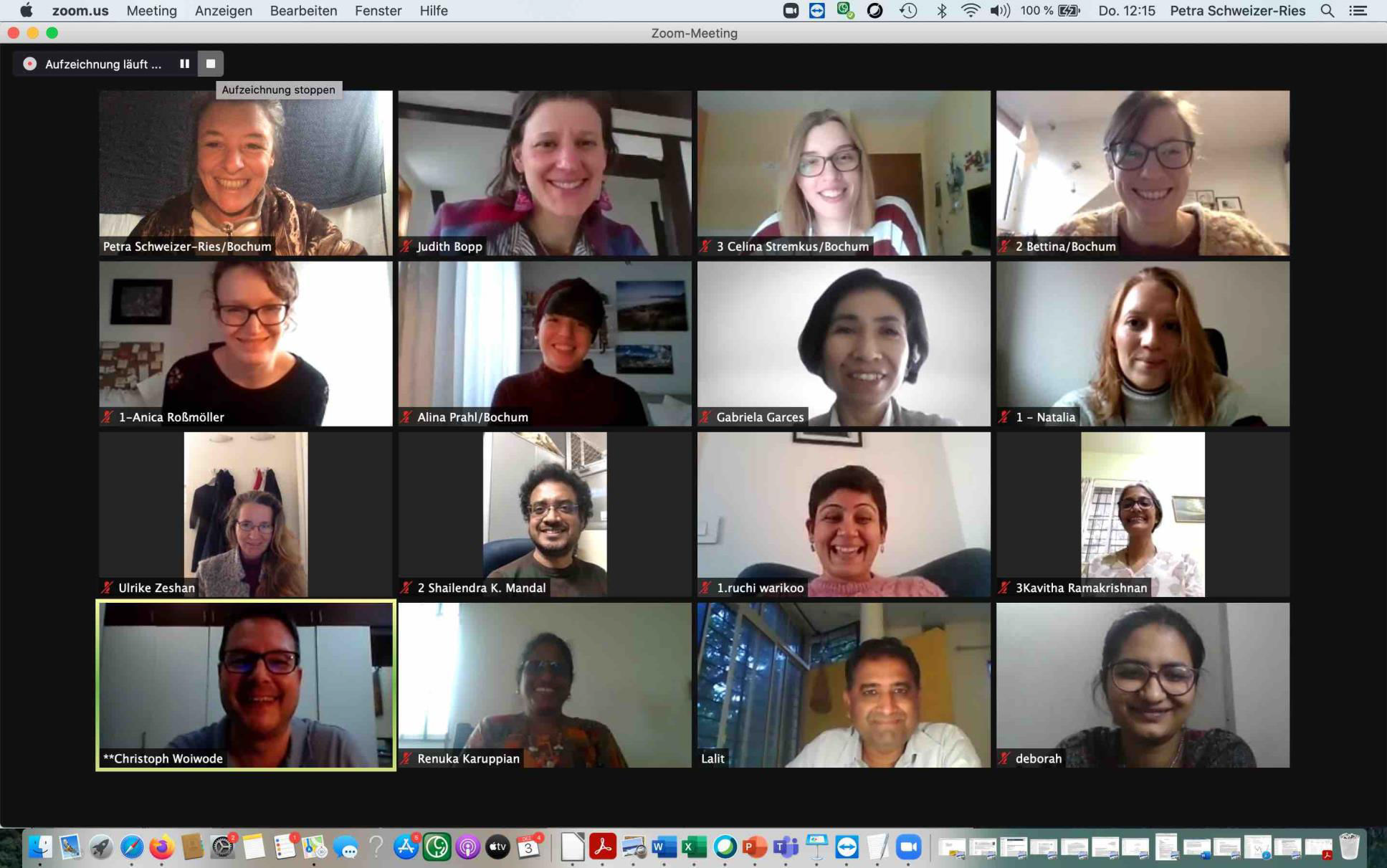
Read the report on the forth symposium
IGD 3 – Co-creation of the Living Environment
The third IGD, co-designed and agreed upon during the second meeting, had as its central theme “Co-Creating our Living Environment” and took place in Pune in December 2019. IGCS partnered with the Centre for Environment Education and Bharati Vidyapeeth Institute of Environment Education and Research while receiving funds from the German Centre for Innovation and Research New Delhi (DWIH) and the German Consulate General Mumbai. For the first time, the IGD reached out to a broader audience by organising a Public Event that showcased projects and offered workshops conducted by the delegates.
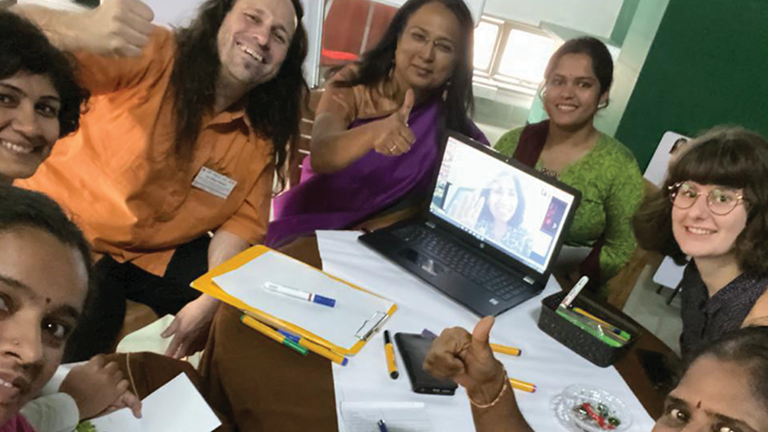
Read the report of the third symposium
IGD 2 – Education, Learning, Training and Awareness for Sustainable Development
The second IGD took place in Freiburg on the cross-cutting theme “Education, Learning, Training and Awareness for Sustainable Development”, co-funded by the German Academic Exchange Service (DAAD) and the German Consulate General Chennai (Report of the 2nd IGD).

Read the Report of the second symposium (pdf, 6 MB, opens in a new window)
IGD 1 – Fostering Social Innovation & Change for Sustainable Consumption & Lifestyles
The first symposium, funded by the Heinrich Boell Foundation New Delhi, was held in March 2017 with more than 40 participants (practitioners and academics) from Germany and India who met in Chennai for three days. They shared and discussed their experiences with social innovation and change agents towards sustainable consumption and lifestyles.
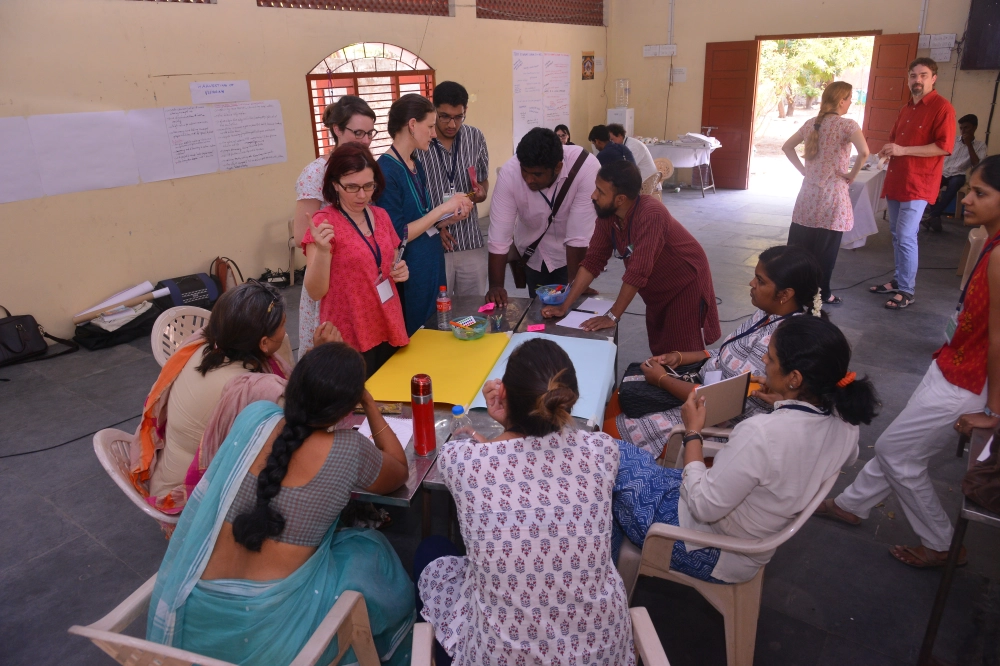
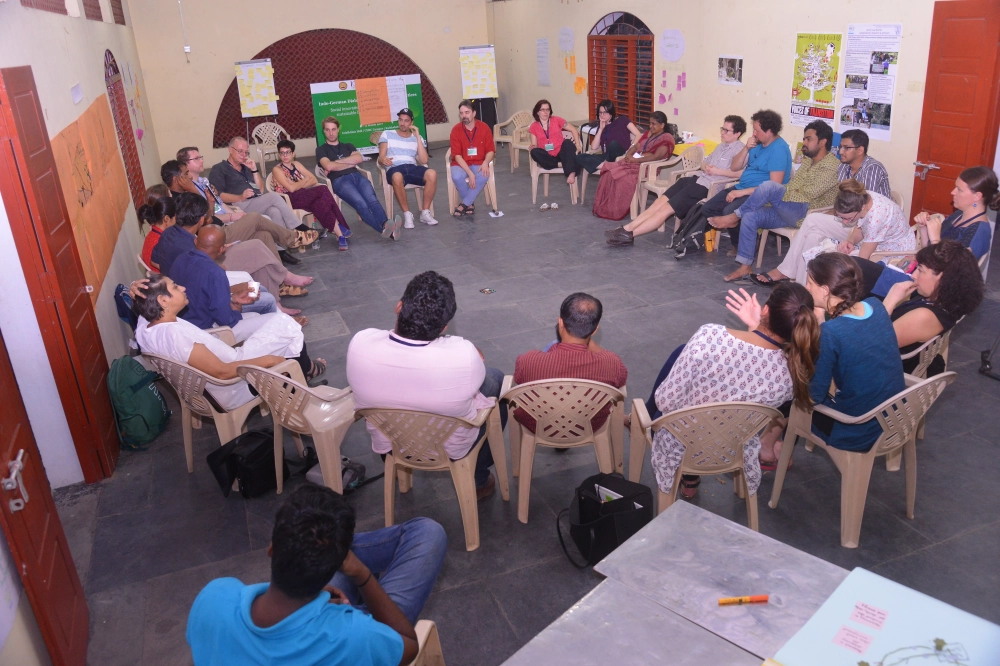
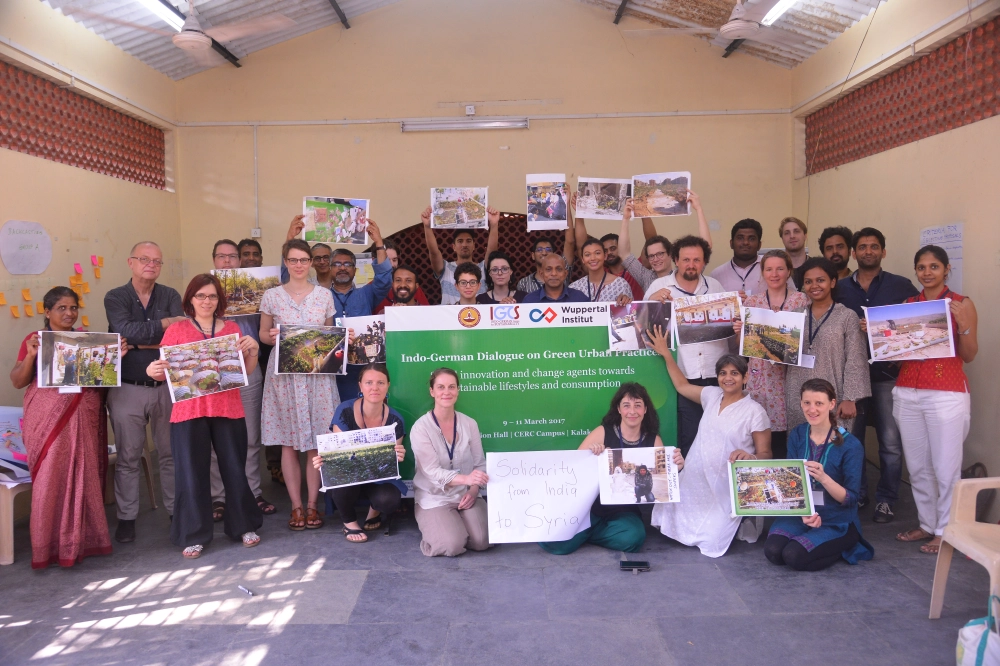
Read the Report of the first symposium
From its conception, this dialogue intended to move beyond a ‘talking shop’ to create a network of people with the potential of envisaging collaboration in practical projects and/ or transdisciplinary, practice-oriented research projects. While this is undoubtedly a challenge, the seed has been sown successfully by building new partnerships. After all, the core objective is to exchange ideas and tools between researchers and initiatives in South Asia (India, Sri Lanka) and Germany to develop actionable solutions in a participative manner.
Overarching Concept of the Dialogue Series
Social dimensions are increasingly recognised as necessary for a global transition to sustainability. Equally, cities and towns have assumed an essential role in action addressing global climate change at the local level. The urban phenomenon will dominate the 21st century, as approximately two-thirds of the population across the globe is expected to live in cities by 2050.
Innovations of technological nature alone cannot achieve sustainable consumption patterns. Social practices and routines must be taken into account. Changes in lifestyle and consumption will also be needed to effect just or equitable transitions to sustainability globally. Lifestyle changes necessitate a change in mindset (i.e. underlying values and worldviews) as well as shifts in social relations and the evolution of the built environment. Across the globe, numerous grassroots initiatives and individuals pioneer novel lifestyles, consumption patterns and ways of living together. There is a need for a global perspective of these change agents. Yet, while such initiatives are crucial to driving transformation in Germany and India, they have few interaction points. Initiating this series of dialogues is an attempt to encourage that exchange and sharing in the global context.
This series of bi-country dialogues on sustainable practices is conceived as a learning journey. Applying the Collaboratory method as a workshop moderation technique during the first dialogue generated a highly interactive environment, which spurred many discussions and critical reflection. Beyond this, it significantly facilitated the production of concrete project ideas to continue the further collaboration between groups and participants beyond the meeting. Clues taken from the previous participants’ feedback suggest that time is given to share and understand each others’ perspectives and situations more in-depth. This is a prerequisite for durable and continuous interaction between diverse participants. For this reason, more extended time will be granted to these elements, as well as adjusting the format of the dialogues to accommodate this cross-cultural experience as the series continues.
Overarching Concept of the Dialogue Series
- cross-cultural experience, knowledge transfer about mutual perspectives and field trips/exposure visits
- this series of dialogues is underpinned by ongoing research of participants and the organisers (interviews, group discussions, mapping, participant observation at field trips, document & discourse analysis, citizen science elements for participation of practitioners in the research process)
- research that comes out of the dialogue networking process and cumulates in collaborative proposals
Contact Us
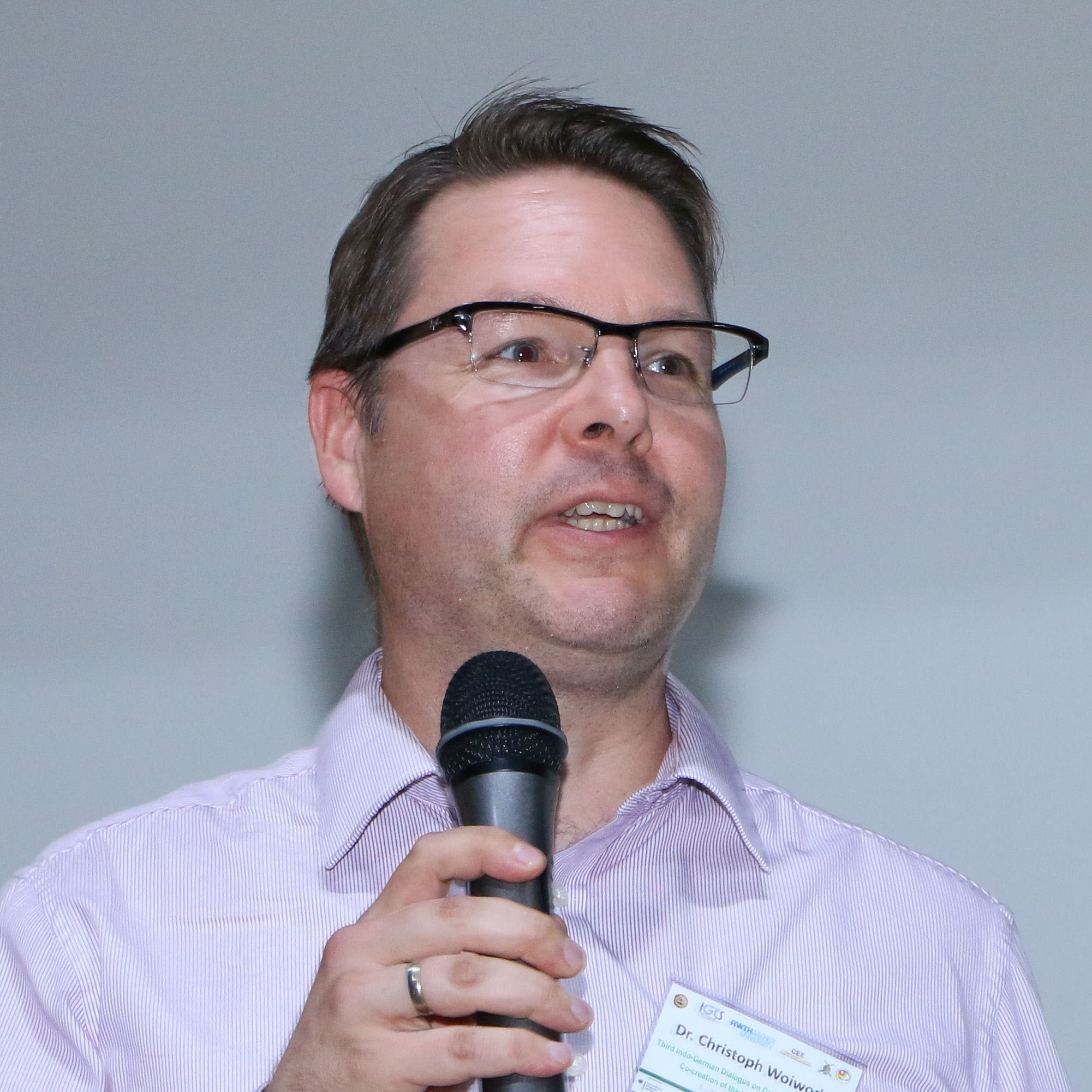
IGCS-Postdoc Land Use, Urban and Regional Development Visiting Faculty at IIT Madras
Dr Christoph Woiwode
RWTH Aachen University, Economic Geography
